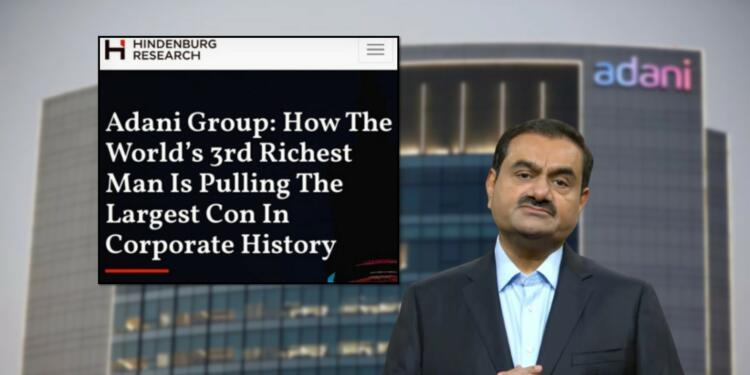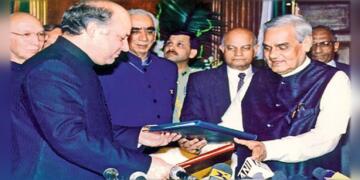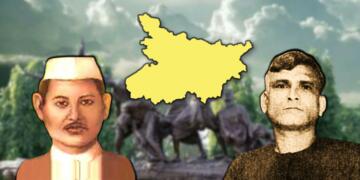Financial world is not that simple. Proponents claim that it is rational and devoid of any daily life idiocies. If we fact-check this claim, there is hardly any truth to it. A company and the geography it operates in, are highly correlated. Destroying companies is proxy to destroying the image of the nation it belongs to.
Hindenburg hit job
New York based firm Hindenburg Research has claimed that Gautam Adani is the largest con in corporate history. The firm claims that Adani has been involved in brazen stock manipulation to inflate Adani Groups’ stocks.
Additionally, the research claims that the debt taken by Adani Group on inflated stocks is not sustainable. It has also sequentially documented the slew of investigations Adani group is under. It includes one by SEBI too.
To showcase Adani’s company as inefficient, the report cites that 42 per cent of leaders in the conglomerate are members of the Adani family. Allegations like money laundering, round tripping have also been made.
Based on its own research, Hindenburg decided to take a short position on its investment in Adani group through US-traded bonds and non-Indian-traded derivative instruments. At the end of its sensational report, Hindenburg asked 88 questions to Adani. On its part Adani group has responded that answers of 21 of these 88 questions are already out in public domain.
Technically speaking, the Hindenburg Research has based its understanding of conglomerate’s fundamentals on debts taken by Adani. There is absolutely no doubt that the numbers quoted by Hindenburg are correct.
Largely, the problem is that Hindenburg deliberately did not mention that most of the investments for which Adani has borrowed money are in their nascent stage. It takes years for companies in the corporate sector to pay off their debts by generating revenues on investment. That does not mean that the Company owner is a Con. Con is a serious word and using it in such a manner decreases the value of the word.
Impact
Meanwhile, the timing and implications of the report is now in question. It came a day before Adani’s Rs 20,000 crore follow on public offer or FPO, which was slated to be the second biggest in Indian history. As a result, subscriptions remained stagnant at only 1 per cent.
In addition, the company also lost $48 billion in the market. Adani’s ranking in the world’s richest list has also declined. There is an absolute bloodbath out there. While the Adani group won’t be destroyed, it is pertinent to look at the broader picture of this stunt.
Adani is a force to reckon with
Attacking Adani provides many-fold advantages to loads of interest groups. The Adani Empire is present in solar manufacturing, logistics, industrial land, defence, aerospace, fruits, data centres, road, rail, real estate lending, coal and many more.
With so much under its belt, there has to be detractors. These include rival business groups, opposition parties, media groups ideologically against industrialisation. Still, it is tough to comprehend why foreign firms would be interested in what is being called as “exposing Adani”.
A clue can be found in nationalism. India has become a force to reckon with on the global stage. It was quite evident in the Ukraine-Russia crisis. India stood its ground and earned respect. Yes, our hard power deserves a big share of it. But hard power can’t be wielded without underlying strong financial one. This is where the Adani group has made its impact in the last few years. Gautam Adani has taken Adani Group’s global expansion mission on war-footing.
Global footprints of Adani
Adani Group is present in Australia for the last 12 years. It is the one that developed the Carmichael coal mine, despite facing protests from woke interest groups. In 2017, Adani poked a hole in the Chinese Belt and Road initiative. That year, Adani Ports and Special Economic Zones (Ltd) signed an MoU to handle containers at Carey Island, located 50 km from Kuala Lumpur. It was contrary to all expectations since a Chinese company was replaced by an emerging Indian giant. More so, it was a boost to India’s status in Malaysia.
Then it was the turn of Chinese presence in Sri Lanka. Adani Group bagged a contract to develop and operate a west container terminal at Colombo port. Within few months, the group ended up having two wind energy projects in the island nation. Bangladesh’s power sector is also getting a boost from Adani’s presence.
Even outside Asia, Adani group is leaving no stone unturned in increasing India’s presence. Last year, Adani group spent $1.18 billion to own 70 per cent of stake in Israel’s Haifa port. Adani is now in direct competition with Chinese state-owned Shanghai International Port Group in Israel. In terms of nationalism, it is a direct attack on the business interest of the Chinese state. In Tanzania, Adani dealt a massive blow to China by signing MoU for an erstwhile premium BRI project.
The group is rapidly expanding its foot in Europe and even geographies like Azerbaijan.
Also read: Adani thrashes the West, is single-handedly set to make India the superpower in Green Energy
West fears colonialism
Yes, it is true that before Adani, companies like TATA, Reliance and many more also expanded to other countries. But there are remarkable differences between their expansion. For one, these industrial groups did not expand parallel to India’s increasing clout. Second difference is that Adani is considered close to PM Modi, which even if not true is certain to give jitters to foreign powers.
They have their own history that give them butterflies. Their colonialism relied on state supported companies starting their productions in colonies. With companies, they sent their administrators and radically changed the course of local history. With so much behind it, why would their instinct not rely towards the belief that India is also kick starting its colonial dream. Even if that is far from reality, the anxious victimised psyche doesn’t believe it.
Part of a big pattern
That is why the rate at which anti-India narrative is being peddled in the western world has increased substantially in the last few years. Time magazine, The New York Times, Washington Post, The Guardian, The Economist and Vice are some of the notable publications that are shedding crocodile tears over India in the last few years.
Even the European Parliament is giving air to baseless anti-India rants. More recently, BBC came up with a direct attack on PM Modi in its now infamous documentary. With 2024 elections on horizon and India’s G20 and SCO presidency in 2023, more such pieces must be in the pipelines.
All of them arriving together can’t be a coincidence. The problem for them is that they have lost their credibility in India. Indians no longer rely on their narratives.
When media hit pieces fail, stopping rapid industrialisation is the next step. Mind you, interest groups have been successful in that regard in the past. Shutdown of Nano plant in West Bengal and Sterlite copper plant are striking examples of their success. It became possible because foreign powers were able to galvanise locals with the help of NGOs. The problem in 2023 is that foreign NGOs with nefarious agendas have been subjected to legal proceedings and even bans. That door is almost closed now.
Targeting big faces of a shining India with Hindenburg type reports is the only way forward. The report is as big as a book. It contains more than 32,000 words and has more than 700 citations. The sheer volume is such that it is next to impossible to give a point-by-point rebuttal within a few days. That’s part of the trick.
By the time Adani Group comes clean on its own, people would have forgotten the allegations and Hindenburg publishers would be carrying on with their comfortable lives in their new Florida homes. Meanwhile, India’s rapid rising industrial power will have taken a monumental hit.
The pertinent question is that of the allegiance of the political force behind such reports. No one will ever know. Even an investigation won’t yield a substantive report. Maybe Hindenburg publishers are just a bunch of tech and finance geeks, looking to mark their presence in their own world by taking down Adani Group and making a fortune out of it. George Soros did it by taking down the British currency. Me and You do not know whether publishers come in same league as Soros.
I would like to finish it with a famous quote from Elon Musk. On one of the birthdays of Shri Atal Bihari Vajpayee, Musk had said, “History is written by the victors except on Wikipedia, as your enemies are still alive & have lots of time on their hands”. Now, we rest this case in your hands.
Support TFI:
Support us to strengthen the ‘Right’ ideology of cultural nationalism by purchasing the best quality garments from TFI-STORE.COM



























